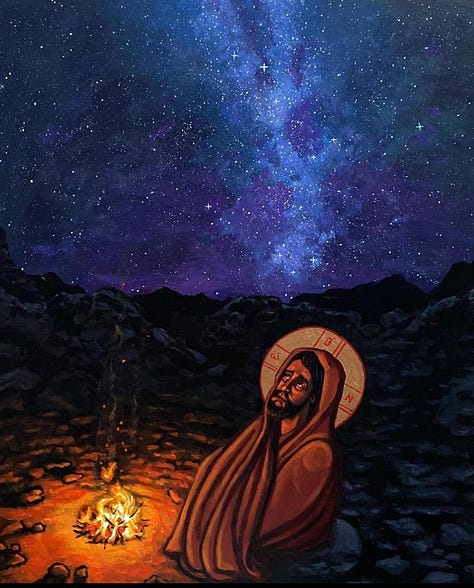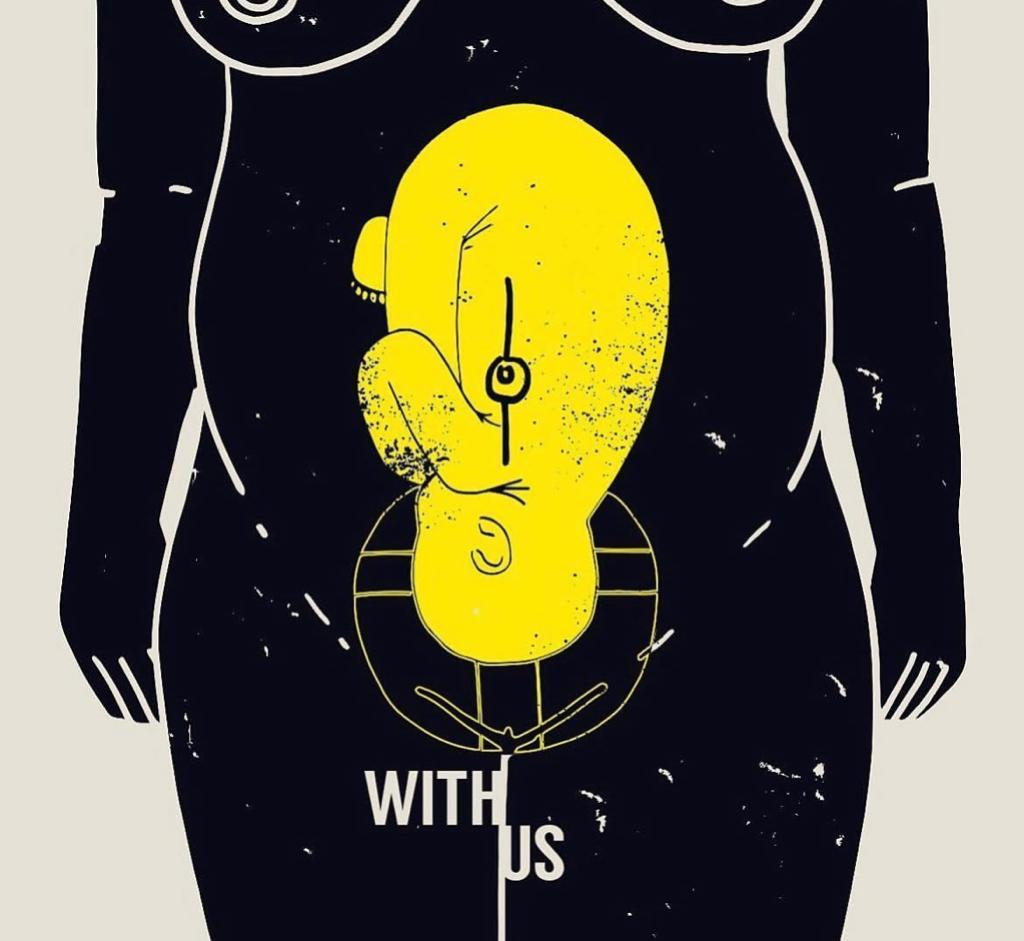Advent for the Clinically Depressed
Meditations on Vulnerability and the Myth of Self-Sufficiency
CW: Suicidal Ideation
Last Advent, I wasn’t sure I would make it to this day. A combination of traumatic experiences, burnout, and a resurfacing of my chronic depression made my life seem unsustainable. I was hurting so deeply I needed a break, and suicide often seemed like the only way to alleviate the pain.
While mental illnesses affect people regardless of their circumstances, systemic realities place people in situations where mental health disorders are more likely to occur. Likewise, systems of oppression create narratives and structures that interfere with people’s ability to heal. The fact that mental health care is a privilege many cannot access is an example of structural impediments to people’s healing. In my case, the religious trauma resulting from ongoing spiritual abuse worsened my already existing mental health disorders. Further, the lack of access to appropriate disability accommodations and the internalized capitalist narratives of productivity and self-sufficiency led me to a place of hopelessness and exhaustion.
Less than two months before finishing my second to last semester of undergrad, I sat in my therapist’s office, relaying the overwhelming thoughts of suicide I was dealing with at the time. I explained that I had so little energy that tasks like making some boxed mac and cheese or taking a shower would drain me for the rest of the day, so I had to choose between feeding myself and taking a test. What surfaced during that session was that I had internalized a narrative in which failing a class and possibly delaying my graduation plans seemed somehow worse than taking my life. That session changed everything for me. Now, I had two options in front of me— vulnerability or self-destruction. Noticing how I prioritized school and work over my own safety and health broke me. I decided at that moment that nothing mattered more than staying alive, and I would make whatever decisions were necessary to stay here.
At the time, I had the privilege of having enough financial stability to quit my job, and I had the support of my family to move back to my home and finish that semester online. I made a commitment that I would not force myself to do more than my body allowed, even if that meant failing a class or two. I had to accept I could not take care of myself alone anymore and needed a community to help me stay alive. Choosing vulnerability was excruciatingly difficult. I felt naked and exposed as I allowed my loved ones to sit with me through panic attacks and long days in bed. And it was there, in the most vulnerable state I have lived through since being an infant, that I was met with the wonder of Advent.
The arrival of God in the flesh is a story of vulnerability. We begin with a young woman who could be stoned to death for being pregnant outside of marriage. As if this pregnancy itself was not an already vulnerable state, Mary is a poor woman living in a land ruled by a cruel empire. Not long after Jesus is born, the Holy family has to flee their home and become refugees to protect the child. But even if Jesus had been born under different, safer circumstances, nothing changes the fact that the Creator of the Universe chose to become a child. God could have chosen to come to the earth as a grown adult in a position of power, but the second person of the Trinity took on the flesh as a poor, colonized, brown baby.
The choice for the second person of the Trinity to take on the flesh was an eternal choice. Christ did not put on a meat suit for 33 years, only to return to a pre-incarnate state. In this way, by taking on the flesh, God declares human embodied existence as worthy of the fullness of God. And the flesh which Christ assumed was a fragile one—one that, even after overcoming death, carries the signs of vulnerability. In other words, the entirety of Jesus’ life on earth, and certainly the wounds he continues to have after the resurrection, pronounce the fragility inherent to the human experience as holy and dignified.
This was the message that encountered me during the Advent season of 2021. God’s choice of vulnerability has significant implications for our communal and individual bodies. On the communal or universal level, Christ’s incarnation challenges the systems of oppression that thrive on human exploitation and individualism. In the incarnation, Christ calls us to look at one another and embrace our interdependence. As one of my favorite professors once said, there is great theological insight in Jesus’ belly button. That little mark on Christ’s stomach speaks of the time when his survival depended on the nutrients transmitted by his mother’s body through the umbilical cord that connected them.
Perhaps some prayerful navel-gazing can remind us that our existence, too, began in a state of utter dependence on another’s body. And while we are no longer connected to an umbilical cord, our survival is still dependent on one another. For instance, while racial capitalism works hard to erase the journey that brings food to our tables, the truth is that the produce that reaches most of our tables in the US was likely harvested by immigrant workers whose work and life conditions are affected by the votes American citizens cast in every election. Capitalism has convinced us that self-sufficiency is not only real but attainable and desirable. Yet, our bodies witness that interdependence is central to what it means to be human.
As I landed in Costa Rica last year and shared with my family the state of my mental health, I was overwhelmed with shame for having failed at being a self-sufficient person. It felt as if asking for help in carrying this burden made me a failure of a human, but what I later found in the story of the incarnation was that sharing this burden was actually an act of resistance to an oppressive narrative. The myth of self-sufficiency was dispelled for me in the story of the Creator of the Universe choosing to become an infant. If the freest Being in the Universe chose from the beginning of time to tie Their existence to creation, bringing this to its fullest extent at the incarnation, then all actions that oppose self-sufficiency are sacred acts of resistance to the powers and principalities that oppress this world.
This Advent, as I reflect on the decisions that quite literally saved my life a year ago, I recognize that they all depended on embracing my vulnerability and welcoming the reality of my interdependence to the rest of creation. From the moment I landed in Costa Rica, I allowed myself to be cared for by my family and friends—I was fed and nourished physically, emotionally, and spiritually by the food and company of my loved ones, who helped me get out of bed when I needed it and who laid down next to me when my body needed a little more rest. I trusted medical professionals to guide me through finding the right medication to manage my symptoms. And I relied on my wonderful therapist, whose compassionate and caring presence often witnesses to my soul about the mothering presence of the Holy Spirit.
While I cannot say that being confronted with Jesus’ choice of vulnerability healed any of my depression symptoms, I can confidently say that the revolutionary message of the incarnation strengthened me to make radical decisions that saved my life. The shame that kept me from leaning into my community to ask for help dissolved when confronted with a God who proclaims the vulnerability inherent to the human experience is not an obstacle to overcome but an opportunity to lean into interdependence. The hope of Advent for the clinically depressed is that we have received the blessing to be nothing less and nothing more than human, and to be human is to depend on one another for our survival and flourishing. The hope of Advent for the clinically depressed is that when we face our need for a community to help us carry the heavy burden of this illness, we imitate the Savior who chose the path of interdependence over the myth of self-sufficiency.
***If you are experiencing thoughts of suicide, I know it doesn’t seem like this pain will pass, but I promise you, it will. And when it does, you will be glad you stayed because even though it might not feel like it right now, your life is worth living, and your existence truly matters. Take a deep breath and text 988 to speak to someone who can help you through this crisis.***







This is outstanding, Wen! Thank you for writing this. (Also, I've been meditating on the Mother of Meekness ikon over the past month. It is so powerful).
Thank you for this, Wen! So insightful and deeply vulnerable. ♥️